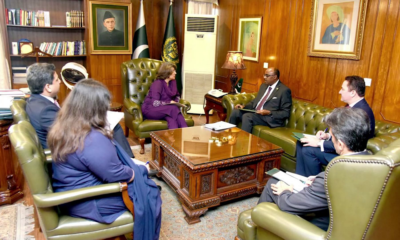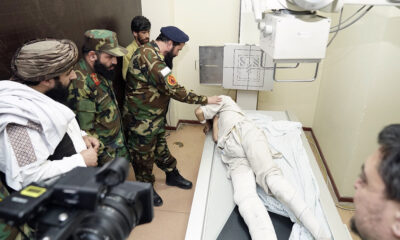Science & Technology
Russia fines Google more than the world’s total GDP over YouTube bans

Russia has fined Google $2.5 decillion after the US tech giant took action against pro-Kremlin TV channels on YouTube following Moscow’s invasion of Ukraine.
Russia imposed a daily fine four years ago - a fine that has since swelled to an unprecedented level - ($20,000,000,000,000,000,000,000,000,000,000,000 - a 33-digit figure).
To put this into perspective, global GDP reaches an estimated $110 thousand billion (12-digit figure), according to the IMF.
Speaking to Russia’s TASS news agency, one expert, Roman Yankovsky from the HSE Institute of Education, said Google “clearly will not pay this penalty, and the Russian Federation will not be able to recover this money from the company."
Euronews reported that a short calculation shows that he is right.
Google's holding company, Alphabet, has a market capitalisation of slightly more than $2 trillion. Even with earnings of $80.54 billion from the last quarter, the tech giant doesn’t seem to be able to afford to pay the fine.
Google first barred pro-Moscow channel Tsargrad TV, which is owned by oligarch Konstantin Malofeev, four years ago.
At the time, Google was fined a daily penalty of 100,000 roubles and warned that amount would double every 24 hours if it went unpaid.
The original fine has been compounded by further penalties after Google eventually blocked a total of 17 Russian TV channels as a result of international sanctions, The Telegraph reported.
The tech giant now owes a staggering $2.5 decillion.
Science & Technology
Apple launches new iPad mini with AI features
Apple said it would roll out the first set of AI features in the U.S. version of the English language this month through a software update with iPadOS 18.1.
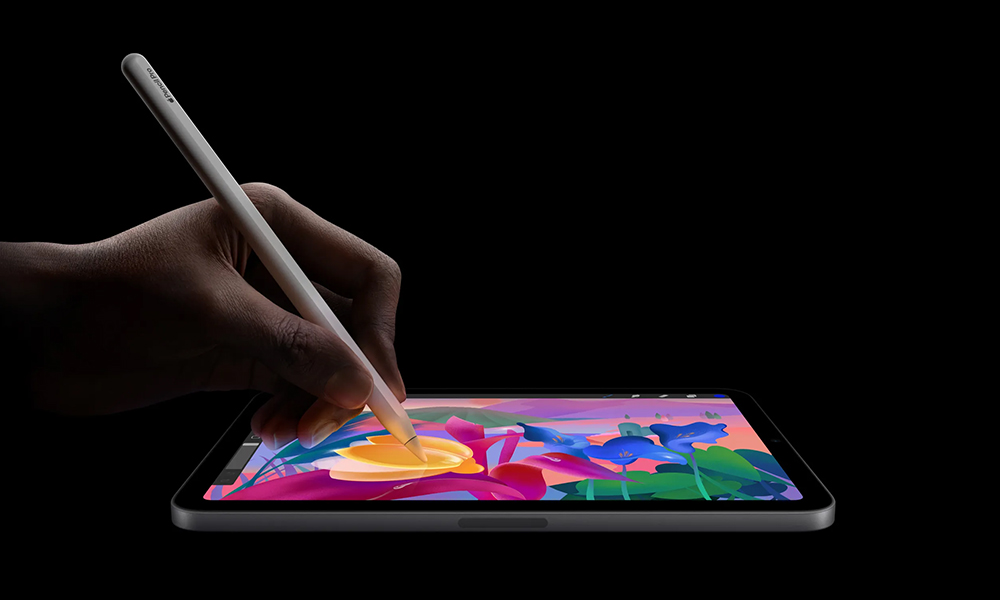
Apple on Tuesday launched its new generation of the iPad mini packed with AI features including writing tools and an improved Siri assistant, as the iPhone maker races to boost its devices with artificial-intelligence capabilities, Reuters reported.
The new iPad mini is powered by Apple's A17 Pro chip, which is used in the iPhone 15 Pro and Pro Max models. With a six-core central processing unit, the A17 Pro would boost CPU performance by 30% compared to the current generation iPad minis and is central to running Apple Intelligence, Apple's AI software.
Apple said it would roll out the first set of AI features in the U.S. version of the English language this month through a software update with iPadOS 18.1.
The features will be available for iPads with A17 Pro or M1 chips and later generations, Apple said, adding it will roll out additional features including image-generation tools, Genmoji and ChatGPT-powered capabilities over the next several months, read the report.
Apple in September unveiled its long-awaited, AI-boosted iPhone 16 lineup, but with the AI features still in test mode, the company failed to excite some investors while early sales data raised some questions around demand.
Still, research firm Canalys on Monday said the iPhone 16 would help Apple's sales in the fourth quarter and drive momentum into the first half of 2025, after Apple reached a record high third-quarter shipments.
The iPad mini, starting at $499, is available for pre-orders starting on Tuesday and will begin arriving to customers and Apple store locations next week, Apple said.
Science & Technology
Iran sends satellites to Russia for rocket launch
In September, Iran carried out its second satellite launch this year using a rocket built by its Revolutionary Guards
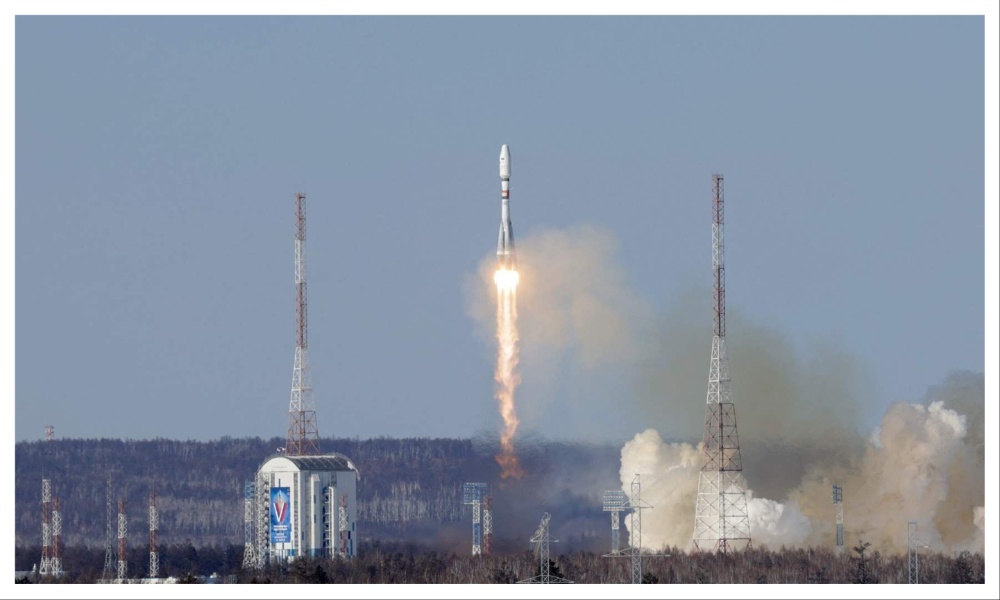
Iran has sent two locally made satellites to Russia to be put into orbit by a Russian space vehicle, the semi-official news agency Tasnim reported on Saturday, in the latest space cooperation between the two U.S.-sanctioned countries.
The development of Kowsar, a high-resolution imaging satellite, and Hodhod, a small communications satellite, is the first substantial effort by Iran's private space sector, the report said.
Russia sent Iranian satellites into orbit in February and in 2022, when U.S. officials voiced concern over space cooperation between Russia and Iran, fearing the satellite will not only help Russia in Ukraine but also help Iran monitor potential military targets in Israel and the wider Middle East, Reuters reported.
Kowsar could be used in agriculture, natural resource management, environmental monitoring, and disaster management, Tasnim said.
Hodhod is designed for satellite-based communications and could be used in remote areas with little access to terrestrial networks.
In September, Iran carried out its second satellite launch, this year using a rocket built by its Revolutionary Guards.
The launch came as the United States and European countries accuse Tehran of transferring ballistic missiles to Russia that could be used in its war with Ukraine. Iran has denied this.
Science & Technology
Tesla CEO Elon Musk unveils ‘Cybercab’ robotaxi
Analysts and industry experts said establishing robotaxis could take years, particularly due to ensuring safety and reliability. They pointed to accidents as well as the difficulty the technology has responding to scenarios such as inclement weather, complex intersections and pedestrian behavior.

Tesla CEO Elon Musk showcased on Thursday a long-awaited robotaxi with two gull-wing doors and no steering wheel or pedals and surprised with robovan, betting on a shift in focus from low-priced mass-market cars to robotic vehicles.
At a glitzy unveiling, Musk reached the stage in a "Cybercab" to be produced from 2026 - eventually in high volume - and priced under $30,000. He then introduced the robovan which can carry up to 20 people though offered few further details, Reuters reported.
But Musk, who has a record of missing projections - and himself said he tended to be optimistic with time frames - did not say how quickly Tesla could ramp up robotaxi production, clear inevitable regulatory hurdles or implement a business plan to leapfrog robotaxi rivals such as Alphabet's Waymo.
Analysts and industry experts said establishing robotaxis could take years, particularly due to ensuring safety and reliability. They pointed to accidents as well as the difficulty the technology has responding to scenarios such as inclement weather, complex intersections and pedestrian behavior.
But Musk, wearing a leather-jacket and addressing crowds at the Warner Bros studio near Los Angeles, said autonomous cars could be 10 times safer than humans and drive five to 10 times longer.
"The autonomous future is here," Musk said. "With autonomy, you get your time back."
Musk had previously said he planned to operate a fleet of self-driving Tesla taxis that passengers can hail through an app. Individual Tesla owners would also be able to make money on the app by listing their vehicles as robotaxis, he had said. He made no mention of the app at Thursday's event.
The event - titled "We, Robot" in an apparent nod to the "I, Robot" science-fiction short stories by American writer Isaac Asimov - echoed Musk's comment that Tesla "should be thought of as an AI robotics company" rather than an automaker.
It started after a delay of nearly an hour which Musk attributed to a medical emergency involving an attendee. The presentation, months in the making, lasted for less than half an hour and was watched by about four million people on Musk's X social media platform alone.
"I'm a shareholder and pretty disappointed. I think the market wanted more definitive time lines," said equity trader Dennis Dick at Triple D Trading. "I don't think he said much about anything."
Running the Cybercab will cost 20 cents a mile over time and charging will be inductive, requiring no plugs, Musk said. Operating the robovans will be even cheaper - at 5 cents a mile.
The vehicles will rely on artificial intelligence and cameras rather than hardware common among robotaxi rivals, he said, such as lidar - an approach experts have flagged as challenging both from a technical and regulatory stand point.
Beyond vehicles, Musk touted "a lot of progress" made with its humanoid robot "Optimus" that could eventually be priced at $20,000 to $30,000 and which can perform many daily tasks.
TOUGH TO CRACK
Musk said in 2019 he was "very confident" Tesla would have operational robotaxis by 2020. This year, he diverted focus to the Cybercab and scrapped plans to build a smaller, cheaper car widely seen as essential to countering slowing EV demand.
Tesla is at risk of posting its first-ever decline in deliveries this year as buying incentives have failed to attract enough customers to its aging EV lineup, showed Reuters calculations based on third-quarter earnings. Price cuts meant to offset high interest rates have also squeezed profit margins.
Several companies attempting to crack the robotaxi market have suffered billion of dollars in loss, forcing some to shut shop.
Alphabet's Waymo, with about 700 Jaguar Land Rover cars in its fleet, is the only U.S. firm operating uncrewed robotaxis that collect fares.
Amazon's Zoox is testing purpose-built vehicles that resemble toaster ovens on wheels and lack manual controls. General Motors' Cruise, which uses the Chevrolet Bolt EV, this year indefinitely suspended plans to develop its self-driving "Origin" without controls.
Tesla's approach to full self-driving technology, in its current iteration, requires constant driver attention but keep costs down. It has, however, faced legal scrutiny with at least two fatal accidents involving the technology.
"We do expect to start fully autonomous unsupervised FSD in Texas and California next year." Musk said. "That's with the Model 3 and Model Y."
He did not say whether the Cybercab uses FSD or new technology.
"Musk did a fantastic job of painting an ideal future for transportation that promises to both free up our time and increase safety," said Jessica Caldwell, head of at car research and buying website Edmunds. "But many questions remain about how this will be achieved from a practical standpoint."
-

 Business5 days ago
Business5 days agoChina to offer Afghanistan tariff-free trade
-
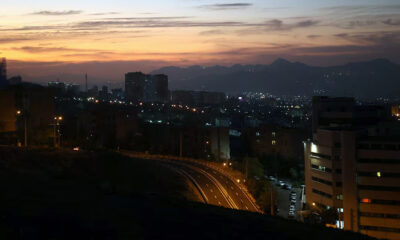
 Regional5 days ago
Regional5 days agoSatellite photos show Israel hit Iran former nuclear weapons test building, missile facilities, researchers say
-

 Sport4 days ago
Sport4 days agoAfghanistan beat Bangladesh 3-2 in AFC U17 Asian Cup Qualifiers
-

 World4 days ago
World4 days agoIranian officials to determine how to respond to Israel, Supreme Leader says
-
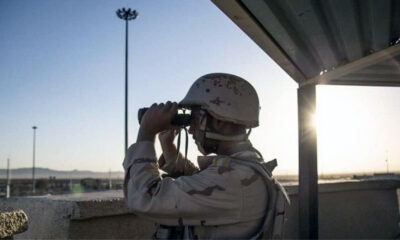
 Latest News5 days ago
Latest News5 days agoTen Iranian border guards killed in attack near southeastern border
-

 Sport4 days ago
Sport4 days agoAfghanistan A to face Sri Lanka A in maiden T20 Emerging Teams Asia Cup final
-

 Latest News4 days ago
Latest News4 days agoSabrina Ugolini appointed as new ambassador of Italy to Afghanistan
-

 Latest News2 days ago
Latest News2 days agoHamid Karzai praises BRICS stance on Afghanistan




